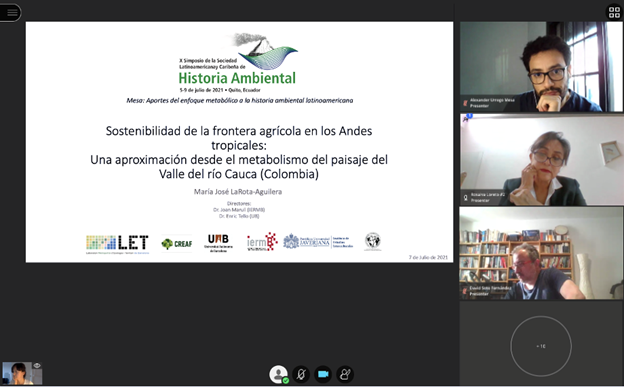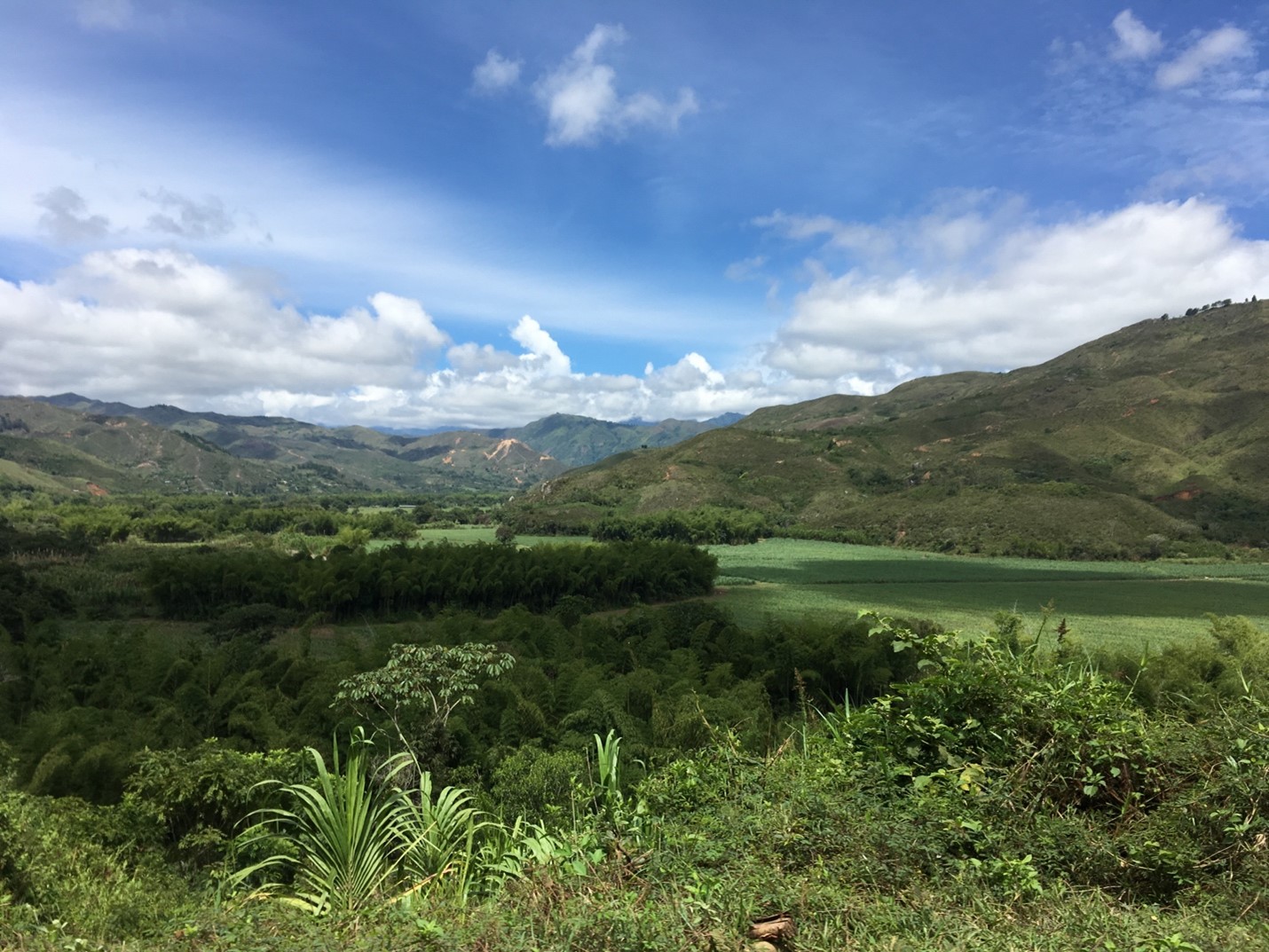The LET participates in the Symposium of the Latin American and Caribbean Society of Environmental History – SOLCHA 2021
On July 7, the LET researcher, María José LaRota-Aguilera, presented part of her doctoral research work at Latin American and Caribbean Society of Environmental History – SOLCHA 2021 on the contribution of the various biocultural landscapes to the maintenance of the ecological functionality in the region of the tropical Andes.
Through the integration of social metabolism and landscape ecology methodologies, this research constructed a typology of productive systems characteristic of the upper Cauca river basin (Colombia). Then, it evaluated later their impact on the human appropriation of net primary productivity (HANPP) and its relationship with various patterns and processes of the biocultural landscapes of this inter-Andean valley.
The results highlight the importance of the agricultural frontier regions, with a high presence of agro-silvo-pastoral mosaics, not only in maintaining the ecological functioning of the geographical valley of the Cuca river, but also the food sovereignty of these peoples and the food security in the region.
In the current Latin American reality, rural livelihoods are at a crossroads with agro-industrial development. Research like this strengthens the evidence that indicates that a commitment to mosaics that “resist” agribusiness is a commitment to food security. Thus, this assessment of landscape metabolism offers an opportunity to enrich intersectoral land policy formulation for highly culturally and biologically diverse regions.
Details of these results will be expanded in forthcoming publications.


